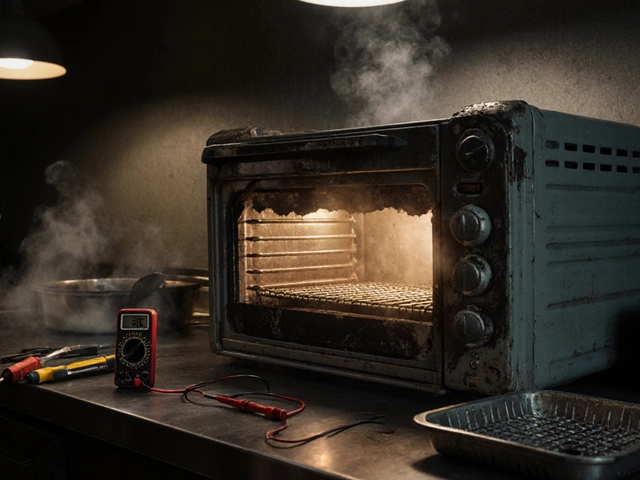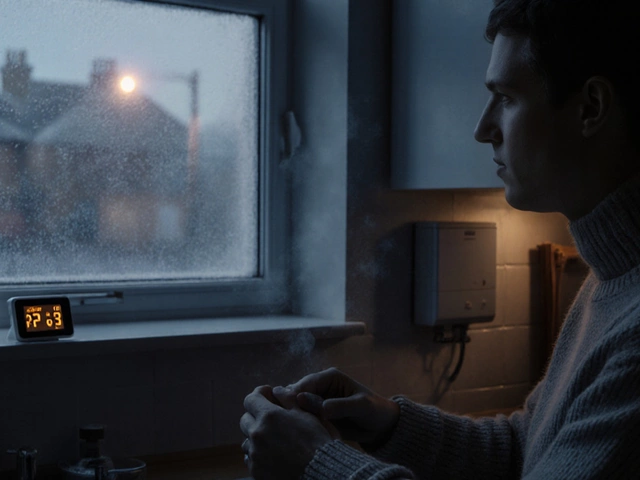When the cold hits, the last thing you want is a boiler that quits on you. A few simple habits can keep your system humming and save you money. Below are the most useful checks and actions you can do yourself before you pick up the phone.
Listen for strange noises – rattling, knocking or whistling often means air in the system or a loose part. If you notice a sudden drop in water pressure (below 1 bar), top it up using the filling loop and watch for leaks around radiators and pipe joints. A yellow or orange flame instead of a steady blue one signals incomplete combustion; that’s a safety red flag.
Check the pressure gauge and temperature settings every month. Keeping the pressure between 1 and 1.5 bar when the system is cold ensures the pump works correctly. Also, wipe the outside of the boiler clean so dust doesn’t block the heat‑exchanger fins.
Don’t ignore the boiler’s error codes. Modern units display a blinking light or a code on the screen. Look it up in the manual – many messages are just reminders to reset the system after a power cut.
If you find corrosion on the pipework, a leaking central heating tank, or the boiler refuses to fire up after a reset, it’s time to call a qualified engineer. Attempting to fix gas‑related issues yourself is dangerous and illegal without the right certifications.
Annual servicing is the golden rule. A Gas Safe registered engineer will clean the burner, test the safety valve and verify that emissions are within limits. The average cost in 2025 hovers around £80‑£120, but a well‑maintained boiler can last 15 years or more, making that spend a smart investment.
When you’re faced with a decision between repair and replacement, weigh the age of the boiler, the repair cost, and the energy‑efficiency rating. If the unit is older than 12‑15 years and the repair exceeds £300, replacement often saves money in the long run thanks to newer, higher‑efficiency models.
Finally, keep a simple log of service dates, pressure readings, and any unusual noises. This record helps the engineer diagnose issues faster and gives you proof of regular maintenance – a plus if you ever sell the house.
By doing these quick checks, staying on top of annual servicing, and knowing when a pro is needed, you’ll keep your boiler running safely and efficiently all winter long.

Wondering how long it takes to swap out an old boiler for a new one? This article spells out exactly how much time you’ll need, what really affects the timeline, and offers practical tips to speed things up. Get the full breakdown, including what you can do before installation day and how to avoid surprises. If you want your heat and hot water back fast, this guide is for you. Find out what to expect from your boiler replacement and how to stay one step ahead.

If your electric oven isn't heating, it's usually due to a broken element, faulty thermostat, or blown thermal fuse. Learn how to diagnose and fix the most common causes quickly and safely.

Find out how much boiler repair costs in 2025, what factors affect the price, typical price ranges, and tips to get fair quotes and save money.

Is it worth repairing a 7-year-old fridge freezer? Usually yes-if the repair is under £200 and the unit still runs efficiently. Learn what fixes make sense, which problems mean replacement, and how much you’ll save on energy bills.

Thinking about replacing your old boiler but dreading the mess? This article breaks down exactly what kind of disruption to expect during a boiler swap. Find out what typically gets messy, which steps are surprisingly neat, and how you can prep your space to keep chaos to a minimum. Get straightforward tips to protect your home, plus the real deal on post-installation cleanup. No sugarcoating—just facts every homeowner should know before booking the job.

If your boiler stops working, know who to call and what to do immediately. This guide covers emergency steps, how to find a Gas Safe engineer, repair costs, and how to prevent future breakdowns in the UK.